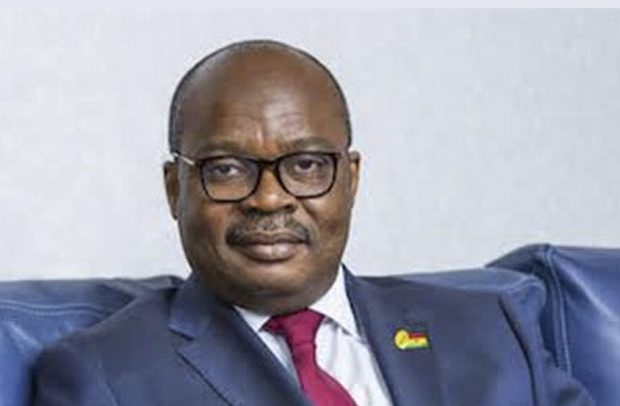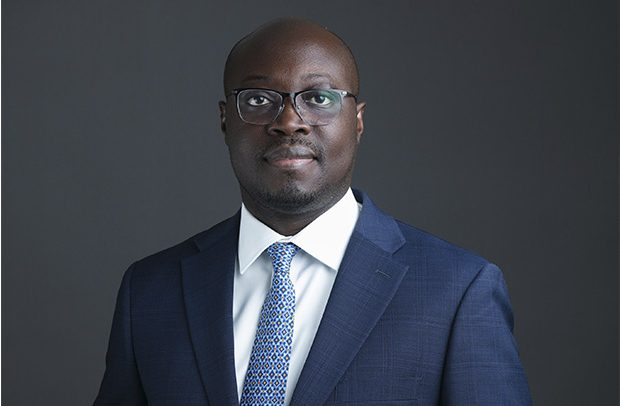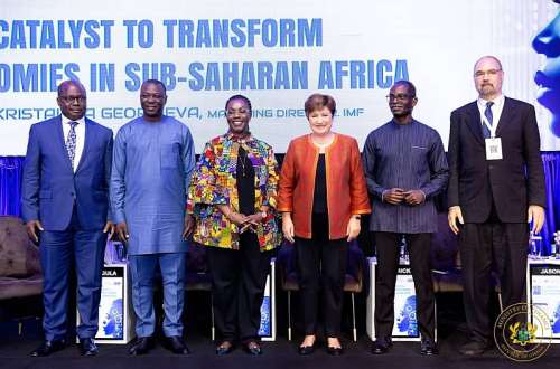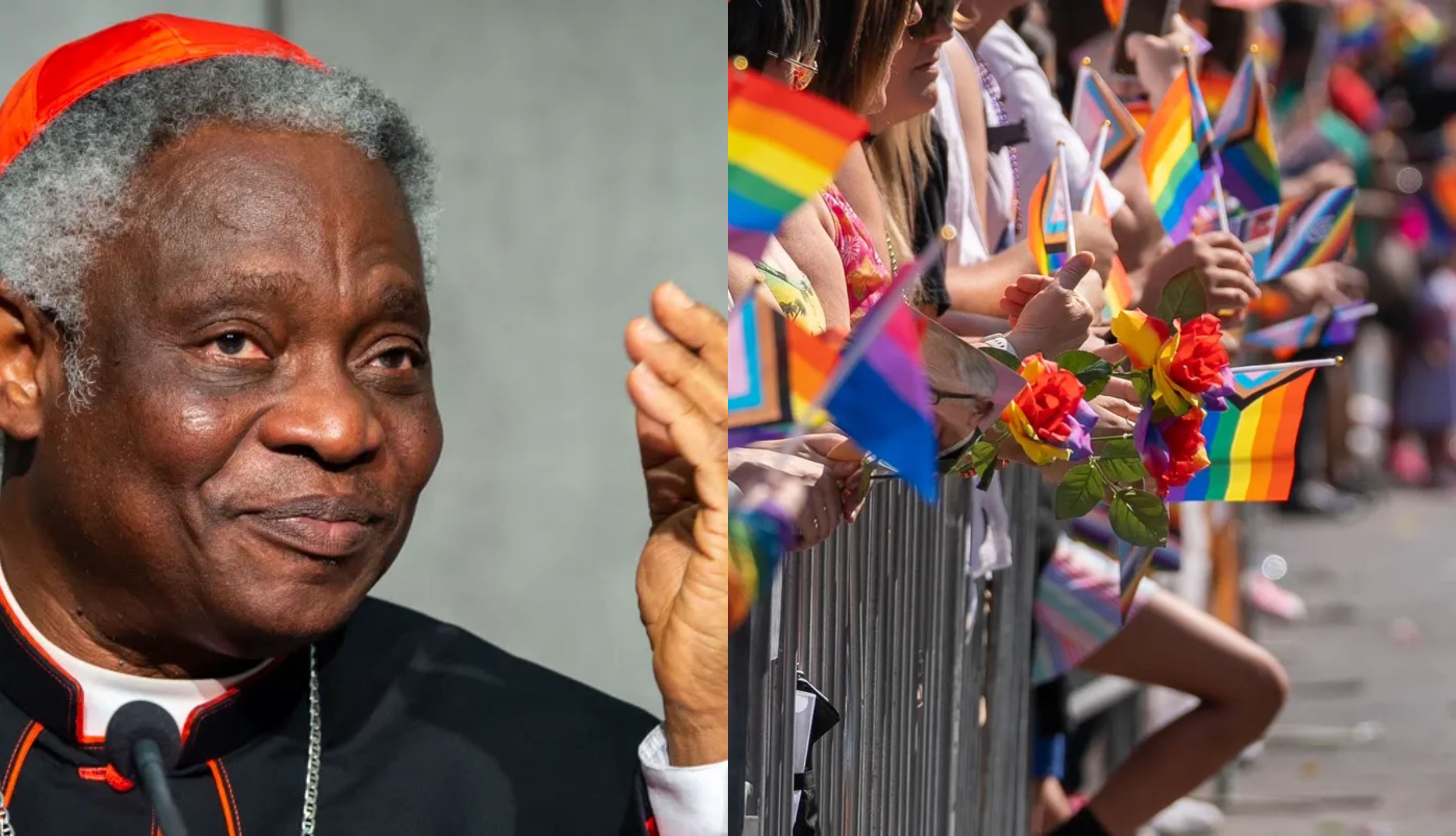
By Joshua Worlasi AMLANU
African central bank governors have urged the International Monetary Fund to overhaul its debt sustainability framework, saying the current model fails to reflect the continent’s unique economic vulnerabilities.
The call came during the African Consultative Group Meeting held in Washington on Tuesday, April 22, where the Bank of Ghana Governor, Dr. Johnson Pandit Asiama, delivered a message on behalf of African representatives.
Speaking on the theme ‘Debt Vulnerabilities in Developing Countries—A Key Challenge for Achieving the Sustainable Development Goals (SDGs)’, Dr. Asiama warned that about half of sub-Saharan African nations were either in debt distress or at high risk by the close of 2024 – following successive shocks from the COVID-19 pandemic, geopolitical instability, tightening global financing conditions and climate-related disasters.
“African countries are grappling with crippling debt service obligations,” Dr. Asiama said, adding that “per capita public expenditure on interest payments in Africa has now surpassed spending on health and education.”
He said this imbalance is severely constraining the fiscal space needed for social and development spending, thereby derailing progress toward achieving the SDGs.
The governors stressed that while African governments are committed to responsible debt management, domestic reforms alone are not enough. They called for stronger international support, particularly from the IMF, to help countries navigate debt vulnerabilities and build resilience against external shocks.
“We are implementing policies to restore fiscal and debt sustainability and promote durable economic growth,” the Governor said. “But these efforts require stepped-up cooperation from development partners, including the IMF.”
Among key proposals presented was the call to strengthen the IMF’s debt sustainability framework (DSF), which is currently under review. African governors said the framework must evolve to reflect new debt instruments and risks, especially those tied to climate change and shifting creditor landscapes.
They called for refinements that improve early-warning capabilities and prevent unsustainable debt accumulation without limiting access to development finance.
“We urge the IMF to enhance its risk assessment tools and early warning systems to identify debt sustainability issues in a timely manner,” Dr. Asiama said. “The current tools are insufficient for capturing the complex and often intertwined economic and environmental challenges African countries face.”
The governors also emphasized a need for the IMF to play a more active role in debt restructuring and relief. While they welcomed the Global Sovereign Debt Roundtable (GSDR) and G20 Common Framework, they said these mechanisms need streamlining to deliver faster and more inclusive outcomes.
“Streamlining debt restructuring processes, improving debt transparency and incentivising private creditor participation is crucial,” Dr. Asiama said. He added that multilateral development banks’ exposure to heavily indebted countries warrants deeper discussions on equitable treatment and financing support.
On a broader front, the governors urged stronger policy coordination among international financial institutions (IFIs). They recommended more aligned financial and technical support tailored to country-specific needs and advocated for innovative financing mechanisms such as blended finance and debt-for-climate or SDG swaps.
“The IMF and other IFIs must recognise that Africa’s debt vulnerabilities are increasingly linked to climate risks,” he said. “We call for ambitious but achievable concessional financing options, joint financing platforms and the development of common policy frameworks to address these interlinked challenges.”
IMF Managing Director Kristalina Georgieva acknowledged the concerns raised and emphasised the IMF needs to play a more active role in debt restructuring, particularly for low- and middle-income countries facing escalating debt challenges.
She highlighted the Global Sovereign Debt Roundtable’s development of a new ‘playbook’ to guide countries through complex debt restructuring processes. This playbook is set to be officially released during the IMF and World Bank spring meetings.
Ms. Georgieva also warned that African economies are vulnerable to further external shocks that could reverse progress in controlling inflation, stabilising debt and correcting trade imbalances. Growth forecasts for Africa were revised downward to 3.9 percent in 2025.
The meeting concluded with a renewed call for the IMF to use its convening power to facilitate deeper dialogue among stakeholders and push for systemic reforms. The African bloc expressed hope that the Fund’s ongoing review of its low-income countries’ debt sustainability analysis will address longstanding shortcomings and deliver a more relevant and inclusive framework.
The post BoG Governor urges IMF to reform debt tools for Africa appeared first on The Business & Financial Times.
Read Full Story















Facebook
Twitter
Pinterest
Instagram
Google+
YouTube
LinkedIn
RSS